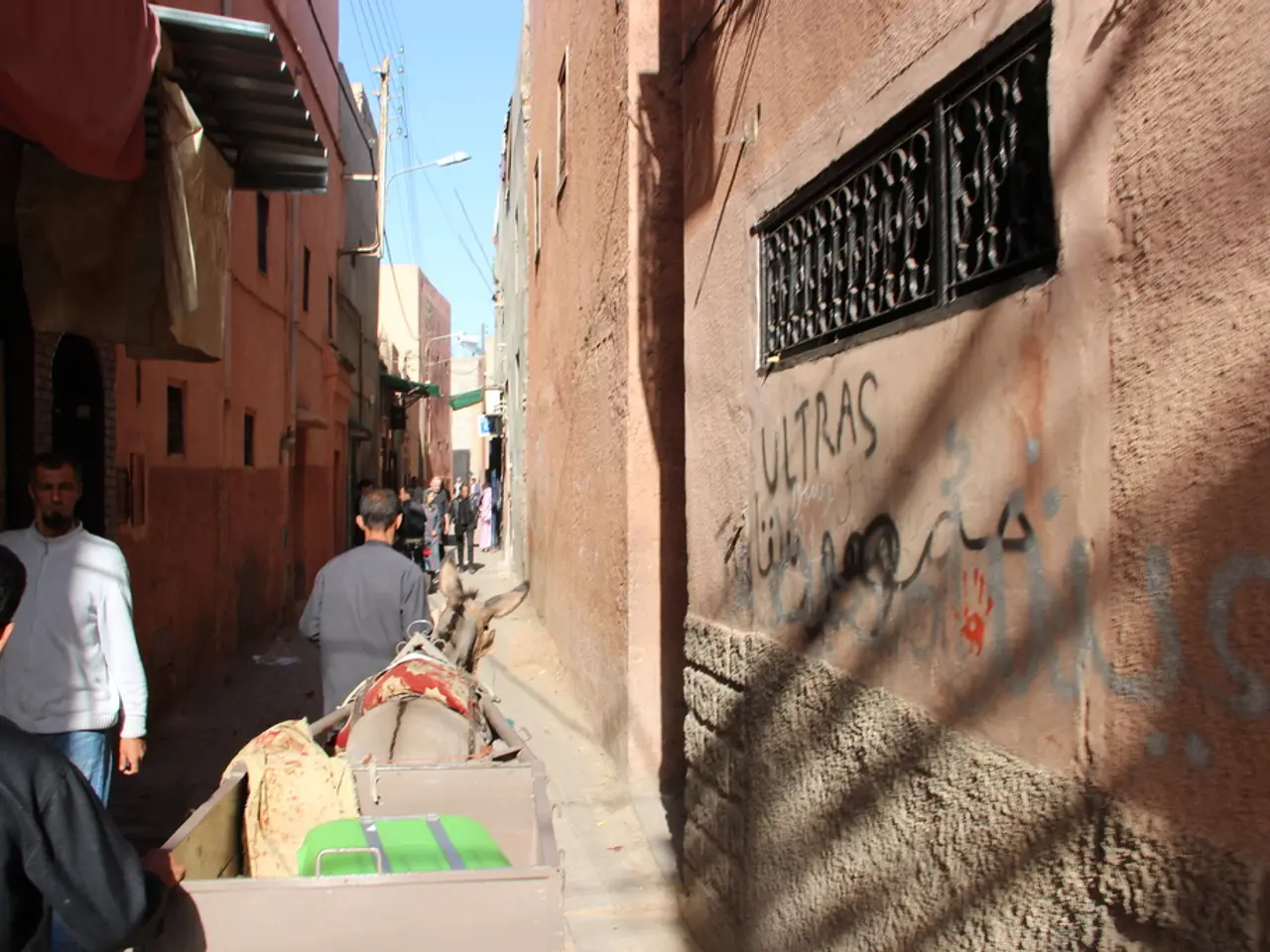Political predicament of Paetongtarn Shinawatra: bracing for two legal confrontations that could potentially bring her down
In the heart of Southeast Asia, Thailand is grappling with political instability as the Constitutional Court prepares to make a crucial decision on August 29, 2025. The verdict could potentially oust Prime Minister Paetongtarn Shinawatra over allegations of ethical breaches.
The current political turmoil stems from a leaked audio clip of a phone call between Paetongtarn and Cambodia's Prime Minister Hun Sen, in which she was heard referring to him as "uncle" and promising to "take care of" any requests. This call led to a major political backlash in Thailand and exacerbated tensions between the two countries, contributing to deadly border clashes.
The legal challenge against Paetongtarn alleges that she violated Sections 160 and 170 of Thailand’s Constitution concerning "evident integrity" and ethical standards required of ministers. This is not the first time the Shinawatra family has faced such challenges. Both her father, Thaksin Shinawatra, and aunt, Yingluck Shinawatra, were ousted due to legal and military interventions.
In addition to the ethics case, the National Anti-Corruption Commission (NACC) is investigating Paetongtarn under a separate Article 144 case, alongside former PM Srettha Thavisin and other ministers. This investigation, which could lead to her removal if the Constitutional Court finds wrongdoing, is set to be decided by mid-September, adding to the pressure on her premiership.
Acting Prime Minister Phumtham Wechayachai has expressed support for Paetongtarn, stating he believes she acted in good faith and that her intentions were to prevent conflict with Cambodia. However, the crisis highlights the deep-rooted conflict in Thai politics between the conservative, pro-military, and pro-royalist elite and the Shinawatra clan, viewed by the former as a threat to the traditional social order.
Rumors suggest that the Pheu Thai Party, to which Paetongtarn belongs, might dissolve Parliament to counteract opposition pressure and create political leverage. However, Wisut Chaiyarun, the President of Pheu Thai MPs and government whip, has confirmed that Paetongtarn has no intention of resigning.
The people's network, led by Somchai Swangkarn, has been actively following up on the case and has submitted additional legal documents to the NACC. If the NACC finds sufficient grounds, it could refer the case to the Constitutional Court, potentially leading to the removal of Paetongtarn and other ministers from office.
Cherdchai Tantisirin, a former red-shirt executive and Pheu Thai MP, hinted that the party might seek to resolve the political deadlock through extra-constitutional means. This situation mirrors the removal of former Prime Minister Srettha Thavisin, highlighting the fragility of Paetongtarn's political standing.
As the nation waits for the Constitutional Court's decision, the future of Thailand's political landscape remains uncertain. A potential removal of Paetongtarn would mark the third time a Shinawatra family member has been ousted early as prime minister, continuing a two-decade-long political struggle in Thailand.
Read also:
- Weekly happenings in the German Federal Parliament (Bundestag)
- Southwest region's most popular posts, accompanied by an inquiry:
- Discussion between Putin and Trump in Alaska could potentially overshadow Ukraine's concerns
- Tinubu's administration allegedly causing issues within every political party as Peter Obi's name surfaces - Obidient Movement asserts







